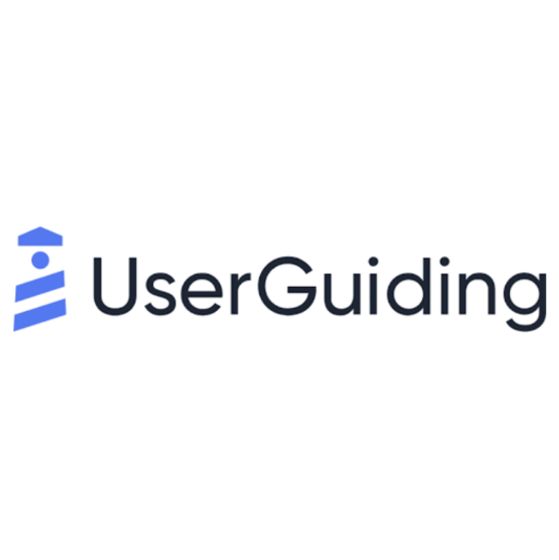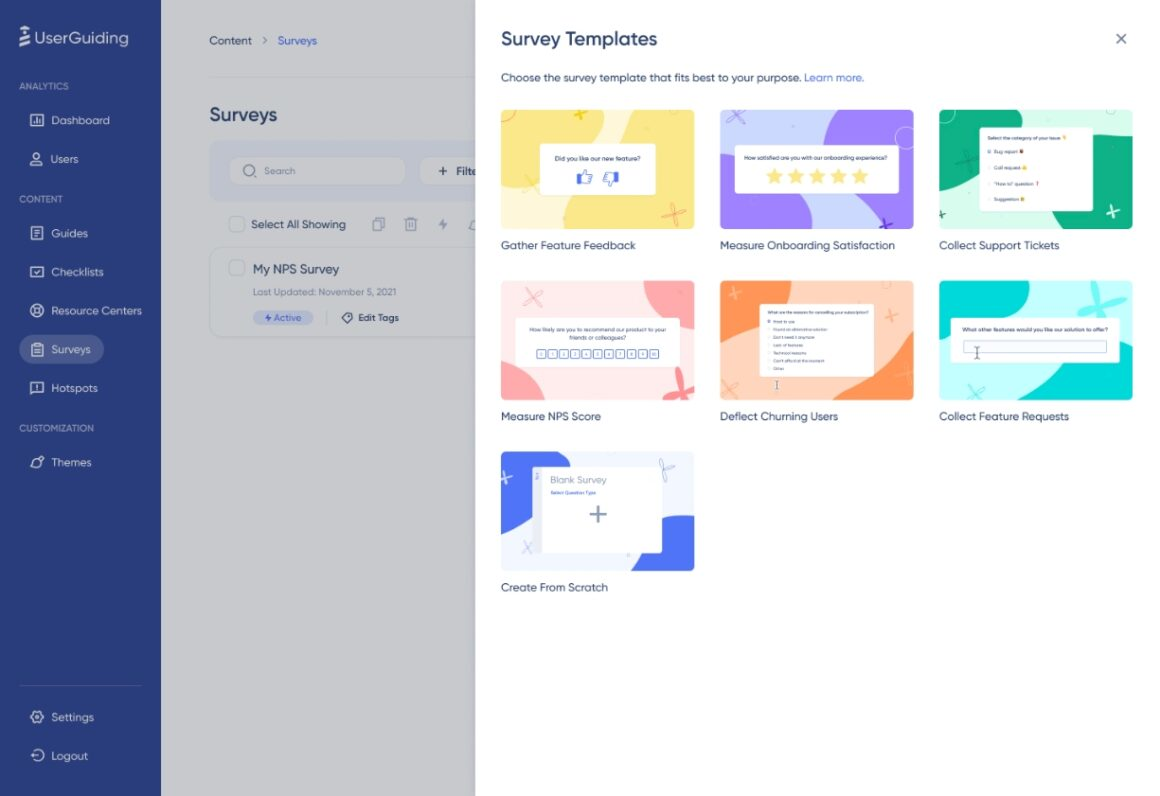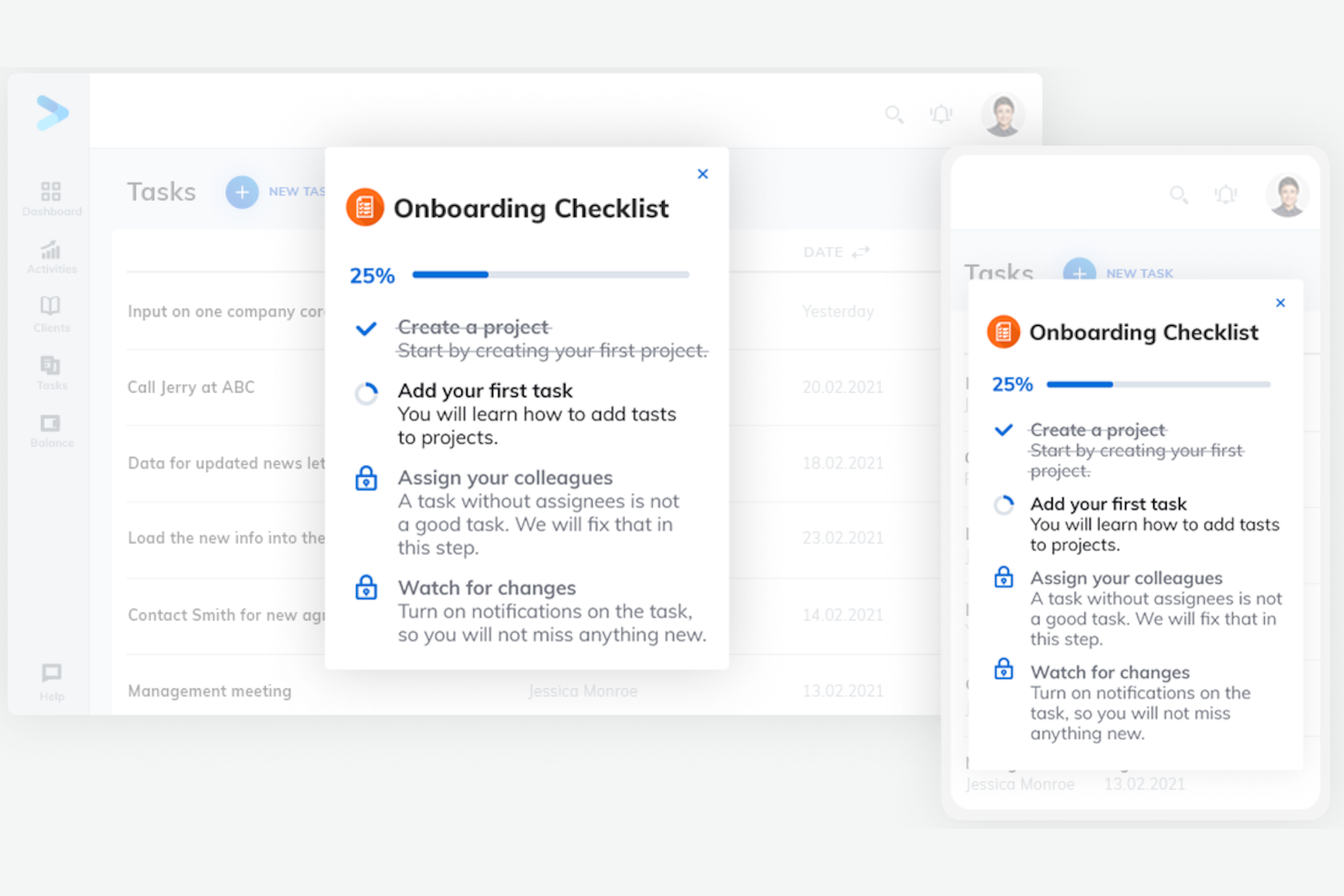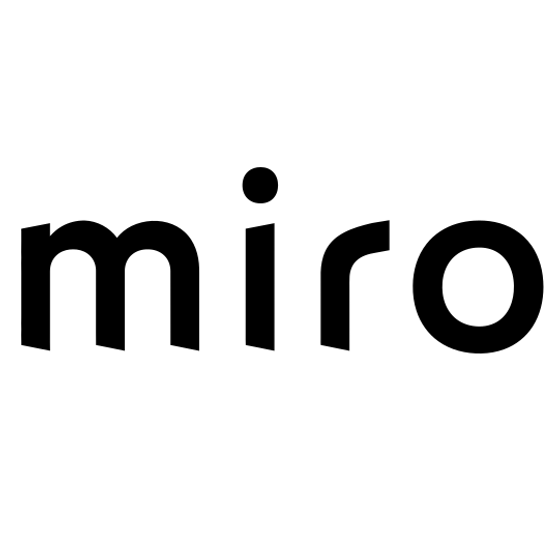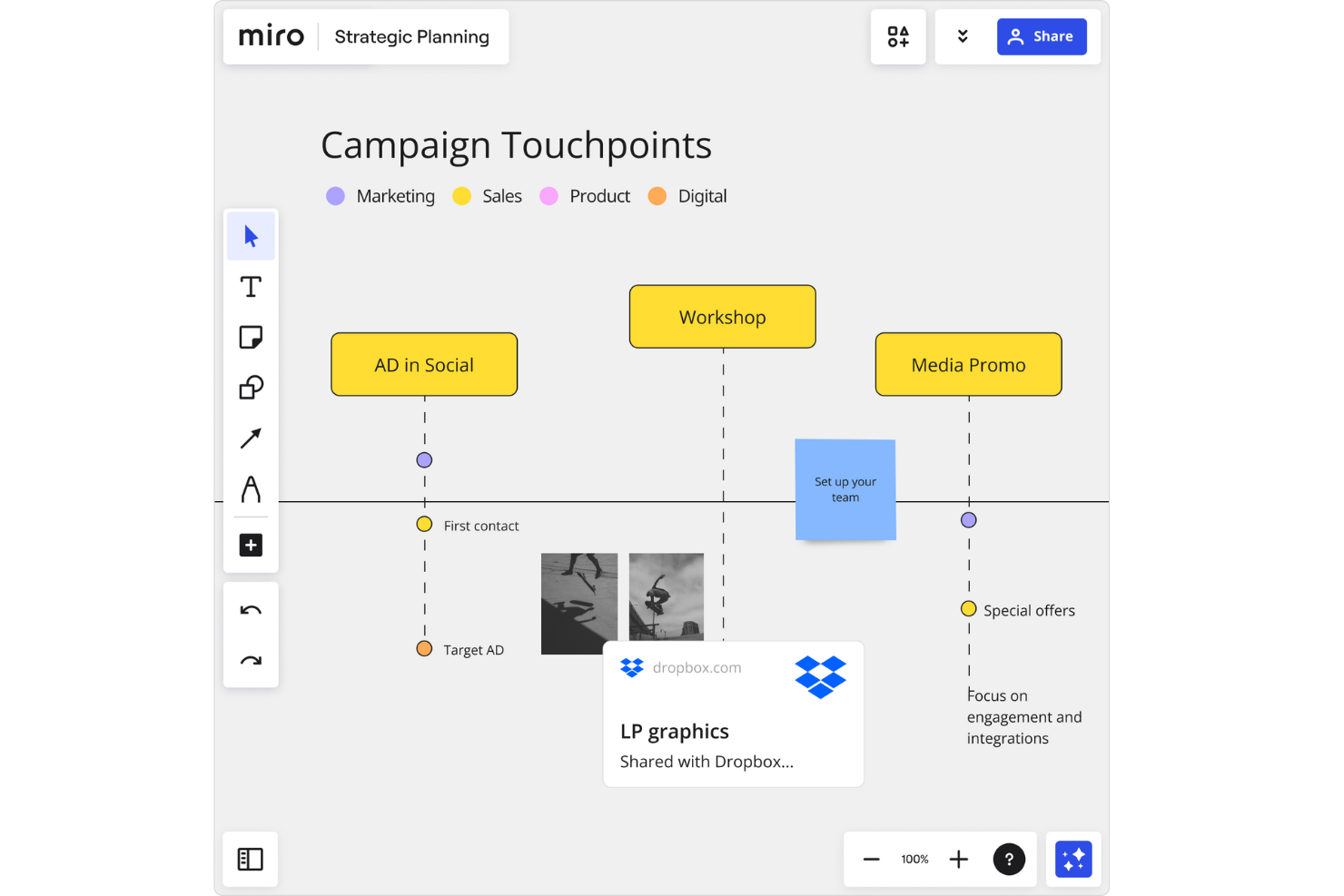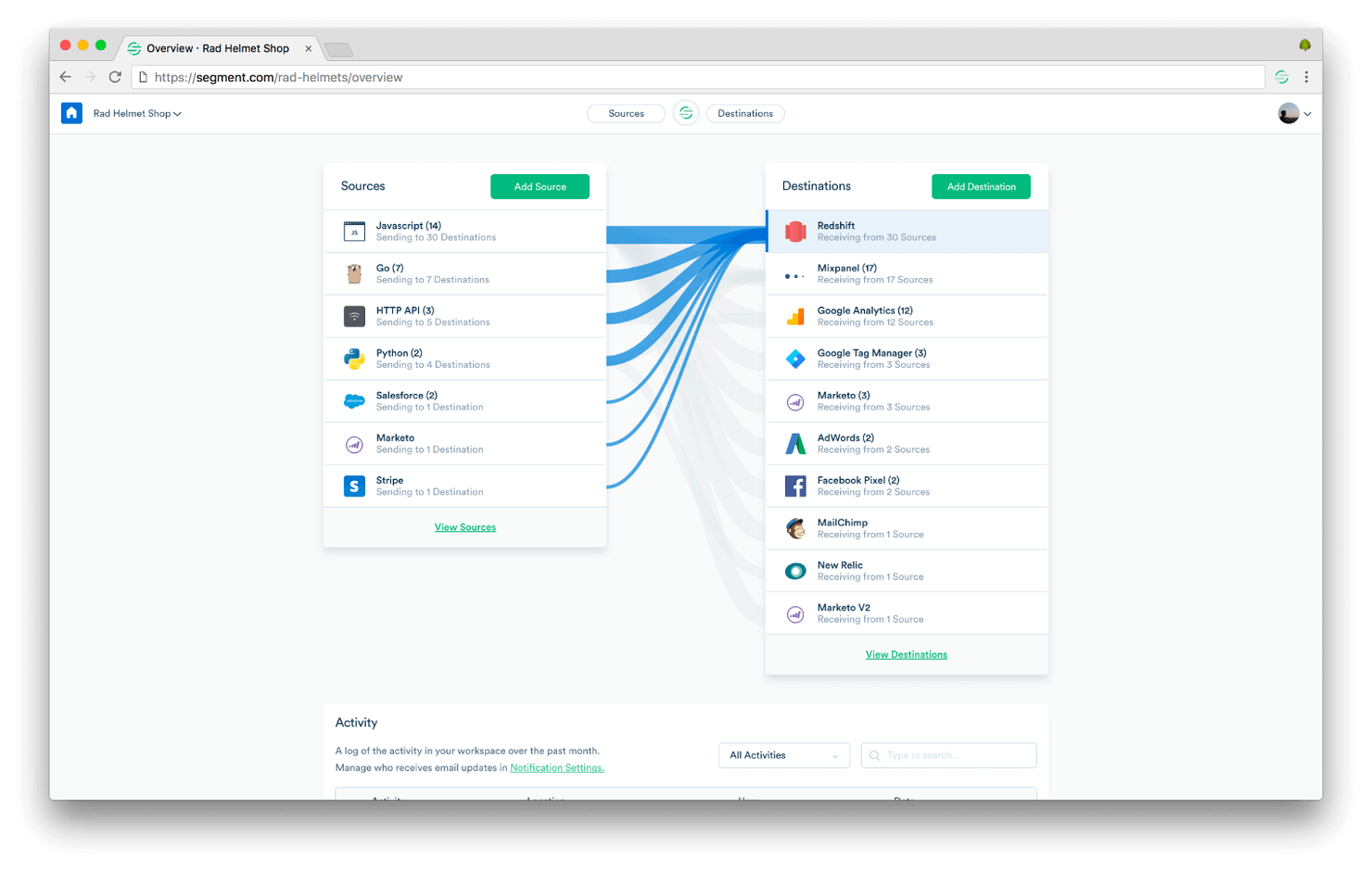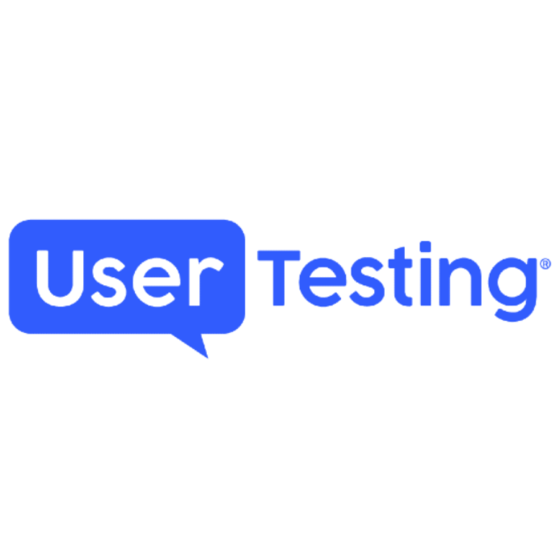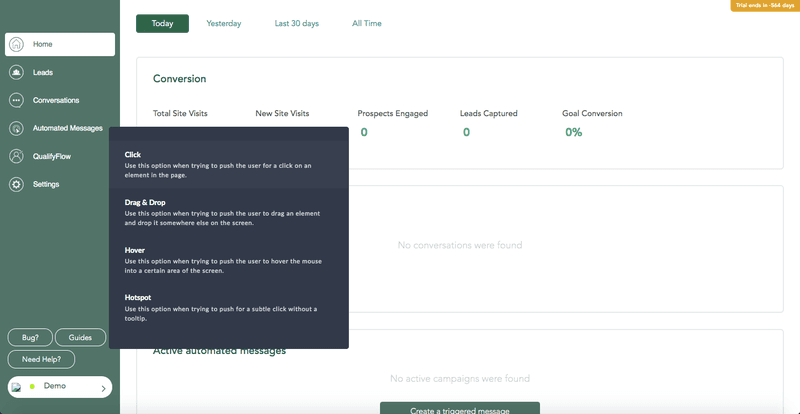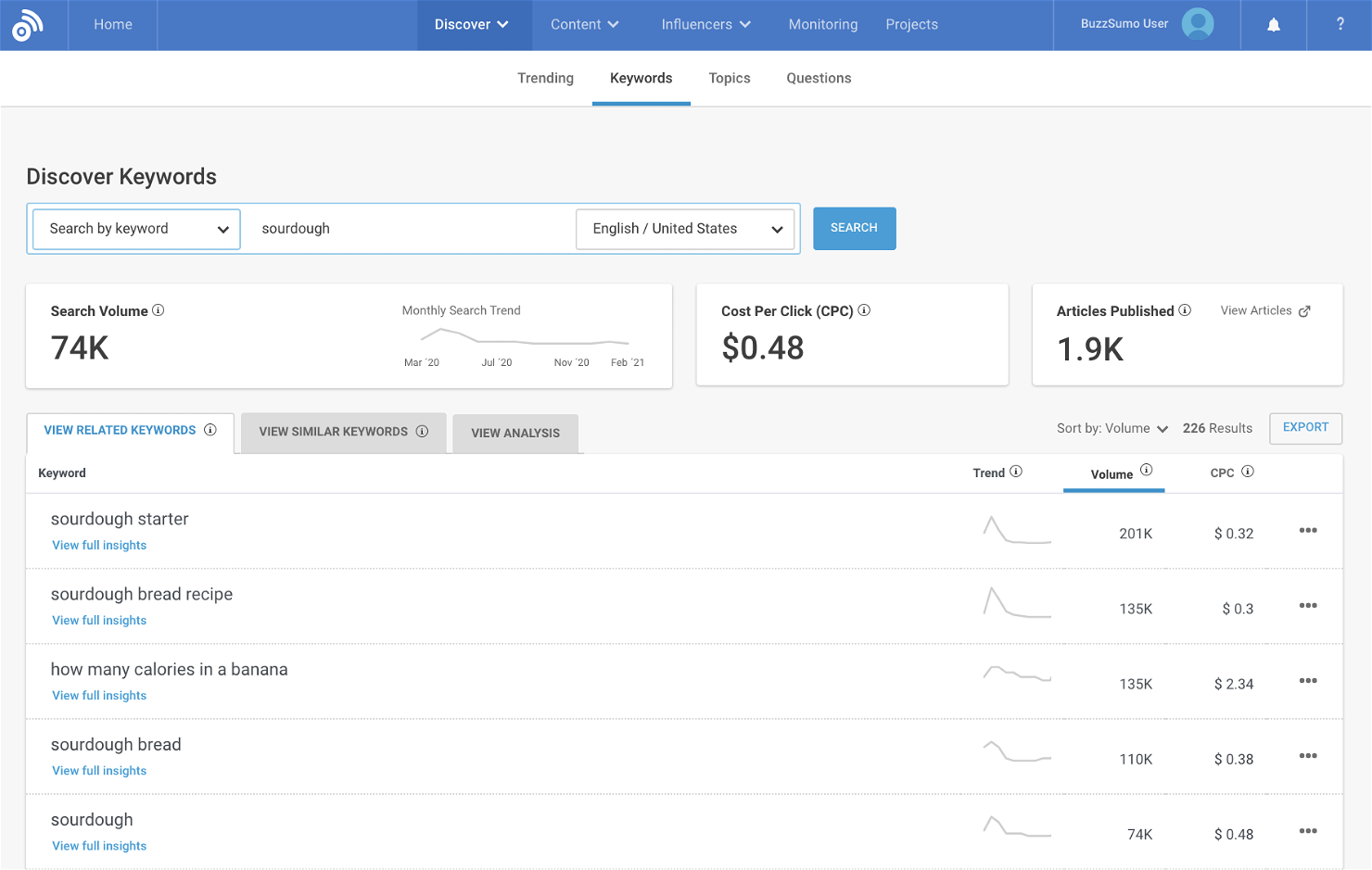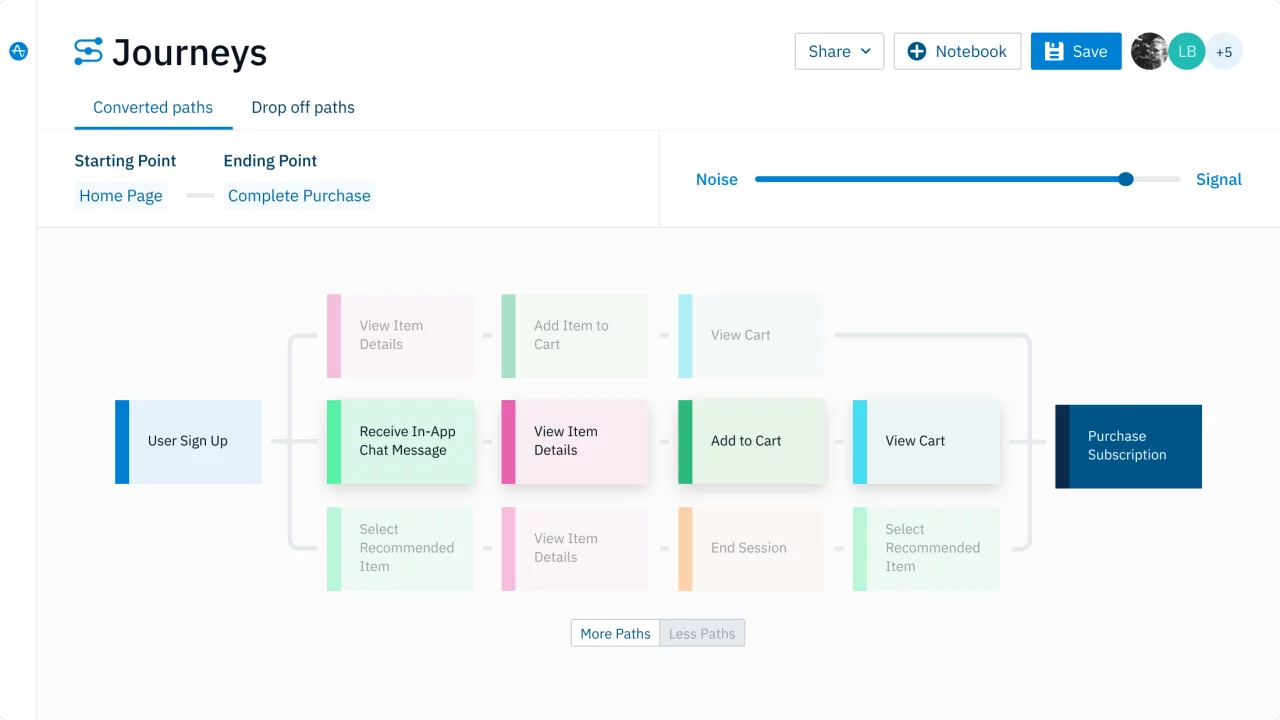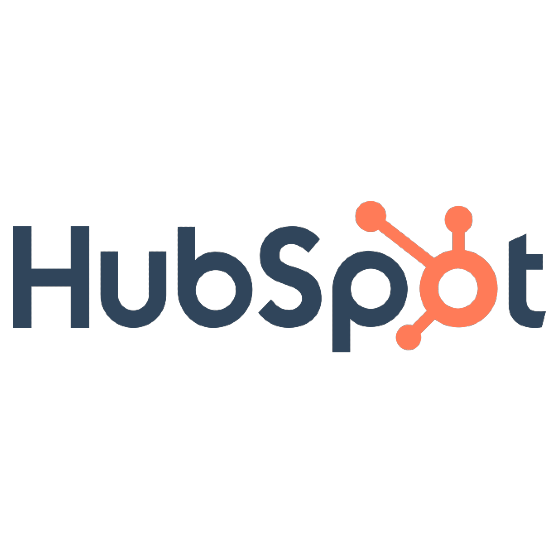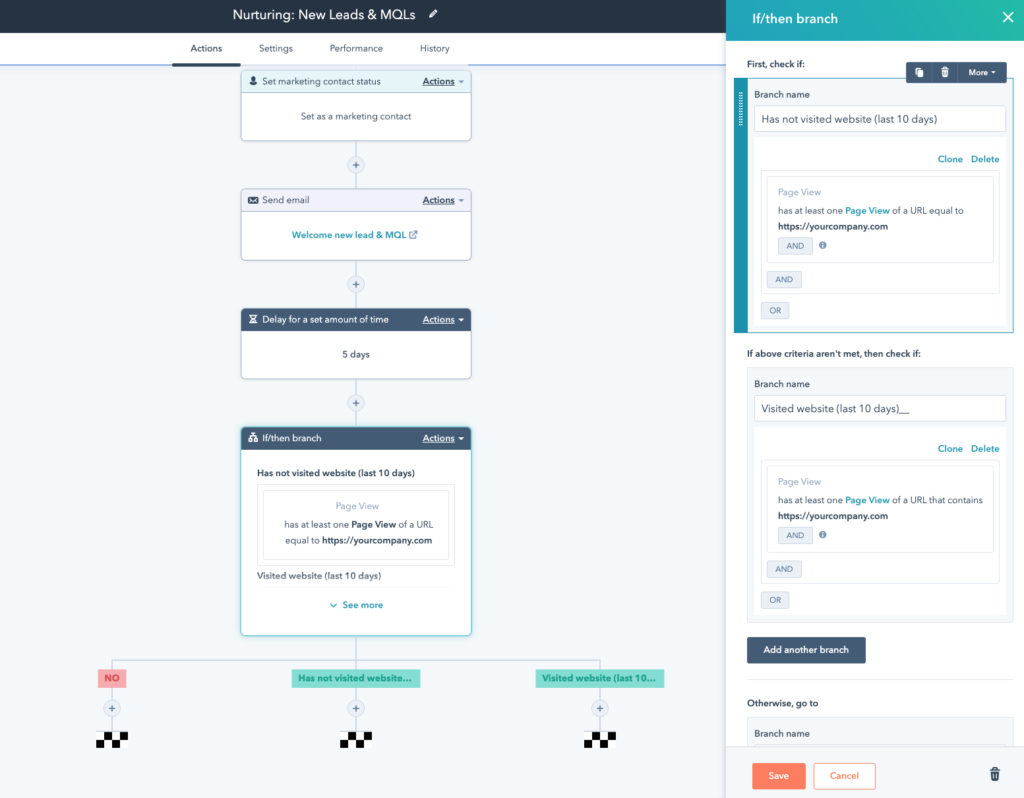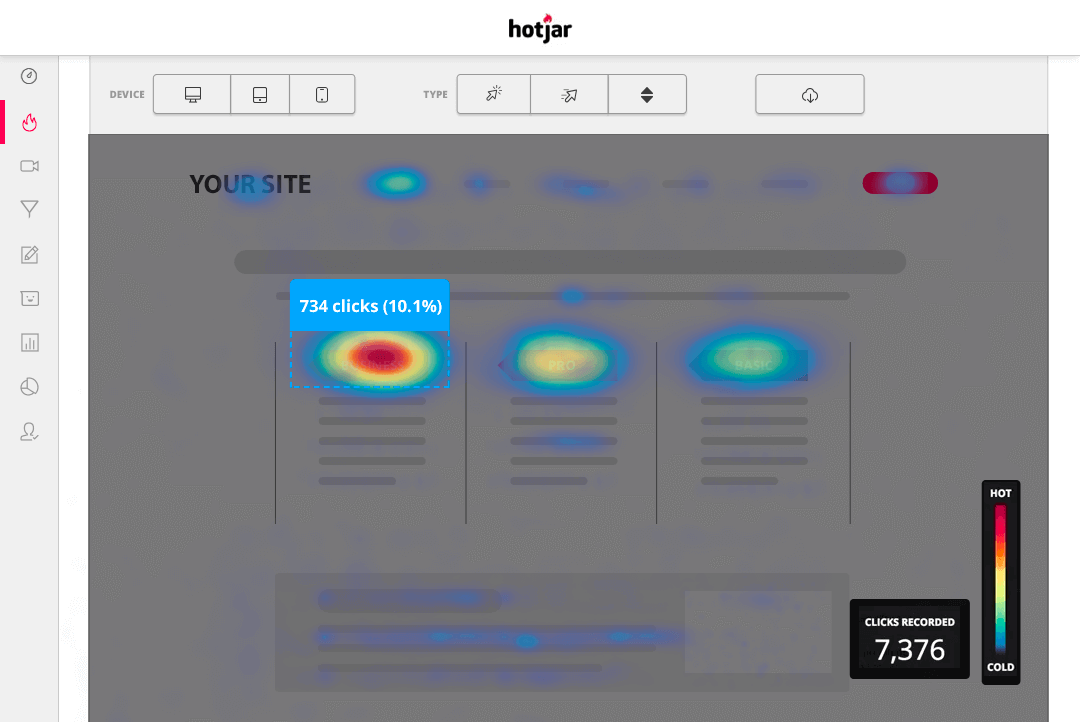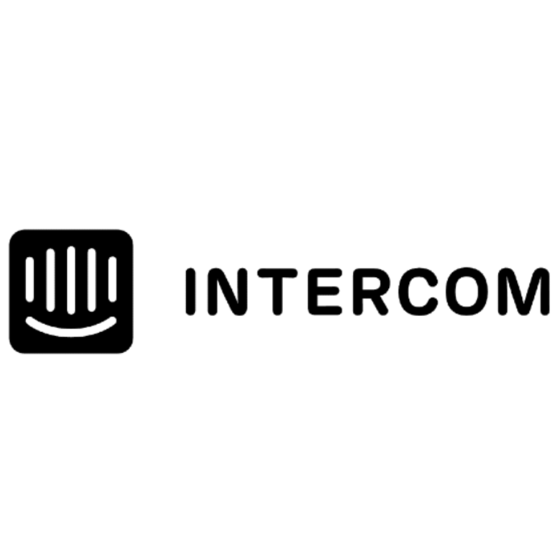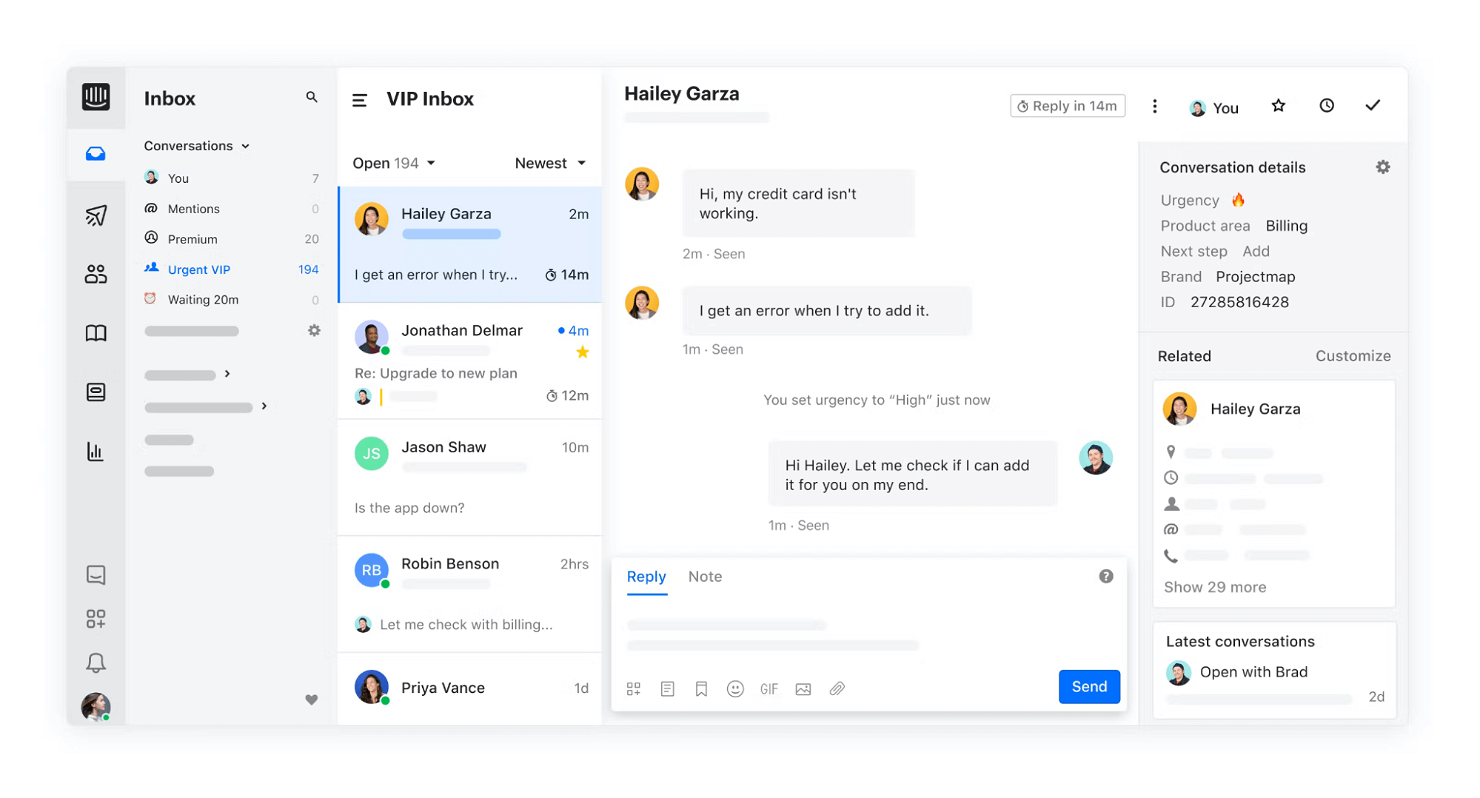10 Best Product Marketing Tools Shortlist
Here's my pick of the 10 best software from the 40 tools reviewed.
Our one-on-one guidance will help you find the perfect fit.
Finding the best product marketing tools can be overwhelming. There are hundreds of tools to choose from and, since most of them help you achieve similar things, it can be difficult to tell which is better. In this post I'll help make your choice easy, leveraging my experience managing big, complex projects, and using dozens of different tools to bring you this shortlist of the best product marketing tools and what makes them great.
Why Trust Our Product Marketing Tools Reviews
We’ve been testing and reviewing product marketing software since 2021. As product managers ourselves, we know how critical and difficult it is to make the right decision when selecting software.
We invest in deep research to help our audience make better software purchasing decisions. We’ve tested more than 2,000 tools for different product management use cases and written over 1,000 comprehensive software reviews. Learn how we stay transparent & our product marketing review methodology.
The Best Product Marketing Tools Comparison Chart
Here is a table with all the tools we just covered in the overviews.
| Tools | Price | |
|---|---|---|
| UserGuiding | From $89/month (billed annually) | Website |
| Product Fruits | From $89/month | Website |
| Miro | From $10/user/month | Website |
| Segment | From $120/month (billed annually) | Website |
| UserTesting | Pricing available upon request | Website |
| BuzzSumo | From $95/month when billed annually | Website |
| Amplitude | Pricing upon request | Website |
| HubSpot | From $45/user/month for the Starter package, with more advanced features available in higher-tier plans. This starting price provides a robust set of tools suitable for many small to medium-sized businesses. (billed annually) | Website |
| Hotjar | From $59/month | Website |
| Intercom | From $74/month (billed annually) | Website |

Compare Software Specs Side by Side
Use our comparison chart to review and evaluate software specs side-by-side.
Compare SoftwareHow to Choose Product Marketing Tools
With so many different product marketing solutions available, it can be challenging to make decisions on what product marketing tool is going to be the best fit for your needs.
As you're shortlisting, trialing, and selecting product marketing tools, consider the following:
- What problem are you trying to solve - Start by identifying the product marketing feature gap you're trying to fill to clarify the features and functionality the product marketing tool needs to provide.
- Who will need to use it - To evaluate cost and requirements, consider who'll be using the software and how many licenses you'll need. You'll need to evaluate if it'll just be the product marketing professionals, or the whole organization that will require access. When that's clear, it's worth considering if you're prioritizing ease of use for all, or speed for your product marketing tool power users.
- What other tools it needs to work with - Clarify what tools you're replacing, what tools are staying, and the tools you'll need to integrate with, such as accounting, CRM or HR software. You'll need to decide if the tools will need to integrate together, or alternatively, if you can replace multiple tools with one consolidated product marketing tool.
- What outcomes are important - Consider the result that the software needs to deliver to be considered a success. Consider what capability you want to gain, or what you want to improve, and how you will be measuring success. For example, an outcome could be the ability to get greater visibility into performance. You could compare product marketing features until you’re blue in the face, but if you aren’t thinking about the outcomes you want to drive, you could be wasting a lot of valuable time.
- How it would work within your organization - Consider the software selection alongside your workflows and delivery methodology. Evaluate what's working well, and the areas that are causing issues that need to be addressed. Remember every business is different — don’t assume that because a tool is popular that it'll work in your organization.
Best Product Marketing Tool Reviews
Here’s a brief description of each product marketing solution to showcase each tool’s best use case and standout features.
UserGuiding is a customer success platform that facilitates re-engagement from the time a new user onboards. You can set up no-code product walkthroughs to boost adoption of core product features and functionalities. And once users are up and running, you can collect their feedback via NPS micro-surveys.
Survey results are displayed in real-time in the software's analytics dashboard. What's unique about this tool is that you can implement solutions or reach out to users quickly in response to their feedback. The information you collect from your surveys can inform how you re-engage existing users but also how you market your product to potential prospects.
UserGuiding integrates with other tools including Mixpanel, Segment, Intercom, Slack, Google Analytics, Google Tag Manager, Woopra, and HubSpot.
Paid plans start from $89 per month with annual billing, and a 14-day free trial is available.
Product Fruits is a software that lets you build customized onboarding flows for new users in your product. You can build user journeys for segmented groups and create a personalized experience to boost product adoption and retention. The platform also allows you to collect user feedback, helping you improve the user experience from the outset.
Product marketing doesn't end at a sign up, and ensuring a smooth transition into your product is as important as getting people to give it a try. You can develop interactive walkthroughs for new customers to discover your product's features and functionalities directly in the app. The checklist tool lets users tick off their learnings as they go, incentivizing them to continue completing the walkthrough steps.
In addition to facilitating user onboarding, you can also use the software to track the user experience. User behavior can be monitored with the platform's dashboards, helping you spot bottlenecks and blockers to complete product adoption. You can also collect user feedback and allow users to report bugs or errors they find. All of this information can inform not just your product roadmap, but your product marketing strategy.
The software integrates with Segment, Mixpanel, Heap, Customer.io, HubSpot, Sessionstack, Smartlook, and Google Analytics. If you use another platform, you can use their JS API to forward events.
Product Fruits starts from $89/month and comes with a 14-day free trial.
Why I picked Miro
Miro is a product marketing software that can help you visualize all aspects of your campaign. Its standout feature is the infinite whiteboard, which provides a dynamic and flexible platform for mapping out your marketing initiatives and capturing ideas and tasks, ensuring that nothing is lost in the process.
The platform's extensive range of visual collaboration tools, including pre-built templates for product management, visual Kanban boards, and task management, make it a versatile platform for product teams. You can also draw dependency lines between tasks to optimize planning and execution, which is especially useful for agile and remote teams.
Standout Features and Integrations
Features include process mapping to plan ahead and retrospectives to look back at previous campaigns to understand successes, roadblocks, and how to prepare for future initiatives. The customer journey mapping feature also allows you to understand your audience's journey for your marketing initiatives.
Integrations include Zoom, Figma, Asana, Microsoft Teams, Jira, Slack, Monday.com, Confluence, Google Drive, Box, Airtable, Notion, Azure, Webex, and more.
Pros and cons
Pros:
- Visual mapping functions
- Support for meetings
- Real-time whiteboard collaboration
Cons:
- Could be easier to manage users and access
- AI features may need work
Why I picked Segment
Segment is a customer data platform that helps businesses understand their customers by providing a single source of truth for customer data. With its features, businesses can collect, clean, and synchronize customer data from multiple sources, and then use it to inform marketing and product decisions.
Segment offers a unique opportunity to get a complete view of your customer. It'll gather up data from all your favorite tools like Facebook, Hubspot, Salesforce, Google, etc, and provide one clear profile that includes all the relevant information you might need.
Standout Features and Integrations
Features include a myriad of data-based features like data collection, data warehousing, data integration, and data governance. These tools let you collect and consolidate customer data from various sources, including websites, mobile apps, and customer support channels, which can be pretty useful when you need to scrub data for performance metrics.
Integrations include Google, Hubspot, Facebook, and Salesforce.
Price
They offer a free plan for two sources and up to 1,000 visitors a month, Team plan at $120 and a custom. Business plan.
Free Trial
They offer a 14-day free trial.
Pros
Robust customer data tracking and analysis tools
Wide range of integrations with other software
Customizable data filtering and routing options
Cons
Limited reporting and visualization options
Can be complex to set up and configure
Why I picked UserTesting
UserTesting is a user research and testing platform that enables businesses to collect valuable feedback on their products from real users. UserTesting is a powerful tool for any product marketer looking to enhance their product's user experience.
UserTesting makes it easy for businesses to optimize product experiences and increase customer satisfaction by offering real-time feedback and usability testing. It allows your business to measure and track user behavior, identify pain points, and gain insights into customer needs and preferences.
Standout Features and Integrations
Features include automation features such as test scheduling, participant recruitment, and report generation. This can save you a ton of time when you want data on your feedback fast, but don’t want to have to analyze it yourself.
Integrations include HubSpot, Adobe Experience Cloud, and Slack.
Price
They offer custom pricing on its Essentials, Advanced and Ultimate plans.
Free Trial
They offer a free trial for an unspecified number of days.
Pros
Comprehensive user testing and feedback tools
User-friendly interface
Wide range of user recruitment options
Cons
Higher pricing plans for advanced features
Limited integrations with other software
Can be time-consuming to set up and conduct tests.
Why I picked BuzzSumo
BuzzSumo is a content analysis tool that helps businesses discover popular content and trends in their industry.
The software offers valuable insights into content marketing and social media strategies by analyzing your metrics and seeing what’s working. You can also identify popular content, track social media trends, and monitor brand mentions with BuzzSumo
Standout Features and Integrations
Features include BuzzSumo's influencer identification feature, which helps businesses identify key influencers in their industry. Its content alerts feature sends notifications when new content is published on specific topics or by specific authors, which is incredibly convenient.
Integrations include HubSpot, Hootsuite, and Buffer.
Price
They offer a Basic plan at $199/month, the Content Creation plan at $249/month, the PR/Comms plan at $249/month, the Suite plan at $399/month, the Enterprise plan at $999/month.
Free Trial
They offer a 30-day free trial.
Pros
Comprehensive social media content analysis tools
Wide range of search and filtering options
User-friendly interface
Cons
Limited integration options
Limited customization features
Higher pricing plans for advanced features
Why I picked Amplitude
Amplitude is a user behavior analysis tool that helps businesses understand how users interact with their product by providing insights into user behavior, engagement, and retention.
With Amplitude, you get access to key customer behavior, and how to improve product experiences. It offers advanced analytics capabilities and real-time insights which enables businesses to make data-driven decisions and drive growth.
Standout Features and Integrations
Features include automation features such as real-time alerts, A/B testing, and predictive analytics, which can help you save time and improve efficiency. Amplitude's advanced analytics and real-time insights seem easy to use, so both you and your customer can have a good user experience.
Integrations include Segment, Google Analytics, and Slack.
Price
They offer a free Starter plan, a Growth plan, and an Enterprise plan, with custom pricing.
Free Trial
They don’t offer a free trial.
Pros
Advanced user behavior analysis tools
Customizable data segmentation and analysis features
Comprehensive knowledge base and support resources
Cons
Steep learning curve for beginners
Expensive pricing plans for larger businesses
Hubspot impresses with its easy-to-navigate user interface. The software has a clear layout that enables marketers to use all of its features with minimal training, which makes it perfect for small businesses with minimal resources. This software helps you understand your customers better, plan and execute marketing campaigns targeting different buyer personas, and collect relevant data about your customers.
You can create landing pages, squeeze pages, or email campaigns from scratch or using templates. One of the highlights of this app is that it offers a straightforward view of all your prospects, leads, and existing customers.
You can see at a glance the marketing pipelines that drive prospects to take action, which of the prospects you should reach out to, and when to contact them.
Hubspot Marketing Hub has a ton of free tools you can access. Paid plans start at $50/month for up to 1000 marketing contacts.
Why I picked Hotjar
Hotjar is a customer behavior analysis tool that allows businesses to track user behavior on their website and optimize their website for better engagement and conversions.
Product managers love Hotjar because you reduce assumptions and validate your ideas in real time. You can see what product feature pages are getting the most traffic and what exactly draws people in or away.
Standout Features and Integrations
Features include heatmapping tools, which are super cool because they help you visualize user behavior from where they move their mouse to where they click and even how far down they scroll on the page. You can see directly what parts of your webpage draw users in. They also include easy-to-navigate reports and dashboards.
Integrations include a variety of helpful tools, including Slack, Google Analytics, Microsoft Teams, Zapier, Optimizely, and Hubspot.
Price
They offer a free basic plan for up to 35 daily sessions. Plus comes in at $32 a month, Business at $80, and Scale at $171.
Free Trial
They offer a 15-day free trial.
Pros
Comprehensive customer interaction mapping tools
User-friendly interface
Customizable feedback polls and surveys
Cons
Limited integration options
Limited reporting and analytics features
Why I picked Intercom
Intercom is an omnichannel messaging tool that helps businesses communicate with leads and customers across multiple channels. It enables businesses connect with their audience in a more personalized way.
Intercom offers exceptional automation, especially when it comes to mapping service interactions. Its powerful set of features are designed to improve customer communication and drive sales.
Standout Features and Integrations
Features include an omnichannel messenger that you can customize to match your brand. It launches with no code, and enables you to have meaningful conversations where you can gather valuable customer feedback. Their impressive AI chatbots answer product questions 24/7 and claim to instantly solve 33% of questions (not bad for an AI!).
Integrations include Salesforce, HubSpot, and Shopify.
Price
They offer custom pricing for all their products, which is calculated based on number of users and unique customers reached.
Free Trial
They offer a 14-day free trial.
Pros
Omnichannel messaging capabilities
Personalized messaging and targeting tools
Comprehensive knowledge base and customer support resources
Cons
Expensive pricing plans
Limited customization options
Steep learning curve for beginners
Other Product Marketing Tools
Here are a few more product marketing platforms that didn’t make the top list but are worth your consideration.
-
Drift
Best for conversational marketing
-
MailChimp
Best for email marketing starters
-
INBOX
Best for email marketing
-
BrandMaker
Best for simple campaign management
-
Amazon Ads
Best for Amazon product marketing
-
Aha!
Best for visually tracking the product roadmap
-
Userpilot
Best in-app guidance for your products
-
Hubspot Marketing Hub
Best for tracking multi-channel campaigns
-
Typeform
Best for creating interactive surveys
-
Referrizer
Best for product referral marketing
-
Mixpanel
Best for advanced analytics and tracking
-
monday.com
Best for marketing planning
-
Omnisend
Best for marketing automation
-
Survicate
Best for scalable customer insights
-
Wrike
Best for customizable marketing task lists & workflows
-
SharpSpring
Flexible revenue growth platform for SaaS businesses with dedicated marketing, sales, and automation features. Demo available upon request
-
GetResponse
Best for email marketing automation
-
Heap
Best software for user behavior analytics
-
Asana
Project management platform with great productivity, content marketing, and communication features. Free plan available
-
Ahrefs
Backlinks and SEO analysis platform with great competitor research, keyword research, content research, and link-building capabilities.
-
NiceJob
Reputation marketing platform that automates the process of encouraging customers to leave reviews on different platforms, including social media. Free trial available
-
GetSocial
Content performance analytics platform that helps with customer acquisition, engagement, and retention. Free trial available
-
FullStory
Digital experience platform with rich analytics and collaboration features. Free plan available.
-
Drip
Email and SMS marketing automation platform with a great interface and customizable pre-built workflows. Free trial available
-
Constant Contact
All-in-one digital marketing software with good email building and analytics features. Free trial available
-
Attentive
Text message marketing solution that helps product marketing professionals connect with their target audience via SMS marketing. Demo available upon request
-
Hive9
arketing performance management solution that enables teams to measure the impact of their work, track the activity of website visitors, and monitor their budgets. Demo available upon request
-
Crayon Intel
Best software for competitive intelligence and market analysis
-
ResellerRatings
Reputation marketing platform with helpful automation and review moderation features. Demo available upon request
-
ClickUp
Collaboration and project management platform that comes with tools and templates that are perfect for small businesses and freelancers. Free plan available
Related Product Management Reviews
If you still haven't found what you're looking for here, check out these tools closely related to product marketing software that we've tested and evaluated.
- Best Product Management Tools
- Best Product Planning Software
- Best Product Development Software
- Best Product Analytics Tools
- Best Idea Management Software
- Best Heatmap Software
Selection Criteria for Product Marketing Tools
If you're wondering how I selected the best product marketing tools, I'll break it all down for you here. First, I started with product marketing tools that have high user reviews and satisfaction ratings. Then, using my experience in product management, I discerned what key criteria were most important for product marketing tools and compared how each of them stacked up against the rest.
I've been using and reviewing product marketing resources for years, so you can trust me to do the heavy lifting and compile all the facts you need to make your final decision.
Selecting product marketing tools requires a focused approach, prioritizing functionality and specific use cases that align with the needs of your business. Through my own trials and extensive research, I've developed a criteria set that guides my recommendations, ensuring that tools not only meet general expectations but also address specific buyer pain points and goals.
Core Product Marketing Tools Functionality (25% of total weighting score): To be considered for inclusion on my list of the best product marketing tools, the solution had to support the ability to fulfill common use cases, such as:
- Comprehensive campaign management and tracking
- Advanced email marketing with automation and personalization
- Robust analytics and reporting for actionable insights
- Effective customer segmentation for targeted marketing
- Seamless integrations with CRM, analytics, and other marketing platforms
Additional Standout Features (25% of total weighting score): Innovation sets apart the best tools in the market, providing users with unique capabilities that enhance marketing strategies and execution. This criterion focuses on identifying those tools that offer innovative features and functionalities beyond the standard set, enabling marketers to achieve greater impact and efficiency in their campaigns.
Such features include:
- Innovative AI-driven insights for predictive analysis, as seen in tools that offer market trend predictions.
- Unique content optimization features for improving SEO and user engagement beyond basic keyword tools.
- Advanced personalization engines that go beyond simple segmentation, offering dynamic content adaptation.
Usability (10% of total weighting score): Ease of use is critical for ensuring that all team members can effectively utilize the tool, regardless of their technical expertise. This criterion assesses the tool's user interface and overall user experience, emphasizing the importance of intuitive design and simplicity in facilitating efficient marketing workflows.
- Intuitive interfaces that simplify complex tasks, like drag-and-drop editors for campaign design.
- Clear, logical navigation that supports efficient workflow management, essential for fast-paced marketing environments.
- Mobile responsiveness, ensuring users can manage tasks effectively on any device.
Onboarding (10% of total weighting score): The onboarding process can significantly influence a user's initial experience and long-term success with a tool. This criterion looks for tools that make it easy for users to get started, offering comprehensive training materials and support to ensure users can quickly leverage the tool to its full potential.
- Comprehensive training resources, including videos and interactive tours, that cater to various learning preferences.
- Pre-designed templates and guided setups that accelerate the initial deployment phase.
- Responsive chatbots and accessible support for immediate assistance during setup.
Customer Support (10% of total weighting score): Reliable customer support is essential for addressing issues and questions that arise during the use of a marketing tool. This criterion evaluates the availability, responsiveness, and quality of support provided by the tool, ensuring users have access to the help they need when they need it.
- Multi-channel support options, ensuring users can access help through their preferred method.
- Proactive support services, including regular check-ins and updates on new features.
- Community forums or user groups that encourage peer-to-peer assistance and knowledge sharing.
Value For Money (10% of total weighting score): The cost of a product marketing tool should reflect its value, offering a balance between price and functionality. This criterion compares the tool's pricing against its features and benefits, assessing whether it provides a fair and competitive value proposition for businesses.
- Transparent pricing models that align with the features and scalability offered.
- Comparison against similar tools in the market to ensure competitive pricing for the functionality provided.
- Consideration of long-term ROI, not just the initial cost, assessing how the tool contributes to campaign success and revenue growth.
Customer Reviews (10% of total weighting score): Customer reviews offer real-world insights into a tool's performance and reliability. This criterion examines feedback from existing users, focusing on their experiences with the tool's usability, support, and overall impact on marketing efforts, to gauge its effectiveness and satisfaction levels.
- Consistency in positive reviews regarding usability, support, and results achieved with the tool.
- Specific mentions of how the tool has addressed common marketing challenges.
- Feedback on the tool’s impact on marketing efficiency and campaign effectiveness.
Using this detailed evaluation framework, I can ensure that my recommended product marketing tools not only cover essential functionalities, but also offer distinctive features that cater to specific marketing needs, maximizing the impact of your marketing efforts and investment.
Trends in Product Marketing Tools
The landscape of product marketing tools is rapidly evolving in 2024, reflecting broader technological advancements and changing market demands. Here, I have identified some key trends that I believe will continue shaping the way marketers plan, execute, and analyze their strategies and campaigns in the future.
- Enhanced Focus on Customer Privacy and Data Security: In response to growing concerns about data privacy and tightening regulations such as GDPR and CCPA, product marketing tools are increasingly emphasizing enhanced data protection features. Tools are being updated to include more robust encryption, anonymization features, and compliance management capabilities.
- Social Media and Influencer Integration: As social media continues to dominate the digital marketing space, tools are evolving to offer deeper integrations with social platforms and influencer marketing campaigns. This includes functionalities for managing influencer partnerships, tracking social media trends, and analyzing the impact of social media efforts on overall marketing strategies.
- Sustainability and Ethical Marketing Features: Reflecting a broader societal shift towards sustainability, product marketing tools are beginning to incorporate features that help brands align their marketing efforts with ethical practices and sustainability goals. This includes tools for measuring the environmental impact of marketing campaigns, promoting sustainable products, and engaging with audiences on social and environmental issues.
- Voice and Conversational Marketing Capabilities: With the rise of voice search and smart speakers, marketing tools are adapting by incorporating voice and conversational marketing capabilities. This includes optimizing content for voice search, managing voice ads, and integrating with chatbots and virtual assistants to facilitate customer interactions.
- Augmented Reality (AR) and Virtual Reality (VR) Marketing Tools: As AR and VR technologies become more accessible, marketing tools are starting to include features that enable immersive brand experiences. This includes AR filters for social media, VR product demonstrations, and interactive 3D ads. These features offer novel ways for brands to engage with consumers, providing immersive experiences that can enhance product understanding, brand loyalty, and ultimately drive sales.
These insights not only highlight the features that are becoming more sophisticated and sought-after, but also shed light on emerging functionalities that are setting new benchmarks in marketing technology. By staying informed about these trends, product marketing professionals can better select and utilize tools that meet their current needs while also positioning them to capitalize on emerging opportunities and technologies.
What are Product marketing tools?
A product marketing tool is a software or platform designed to assist businesses in planning, executing, and managing their product marketing strategies. These tools are equipped with features that help streamline various aspects of product promotion, communication, and analysis. Product marketing tools often encompass functions such as market research, competitor analysis, customer segmentation, campaign management, analytics, and other components essential for effectively bringing a product to market and maximizing its success.
Features of Product Marketing Tools
The right product marketing tools will not only help you plan and execute effective marketing campaigns, but also help analyze your marketing efforts, ensuring that you can adapt and optimize for maximum impact. Below, I detail the most important features to consider when choosing your marketing toolkit.
- Campaign Planning and Management - Effective campaign management allows users to create, schedule, and monitor marketing campaigns from a centralized platform, ensuring consistency and coherence in your messaging.
- Segmentation and Targeting - This feature enables users to divide audiences into distinct groups based on various criteria, such as demographics, behavior, and purchase history, allowing for more personalized and effective marketing efforts.
- Analytics and Reporting - Having access to real-time data and the ability to generate reports tailored to your specific needs is crucial for measuring the success of your campaigns and making data-driven decisions.
- Email Marketing Features - Since email remains a critical component of most marketing strategies, having sophisticated email marketing features, including automation, A/B testing, and performance tracking, is vital for engaging with your audience effectively.
- Content Management - Whether it's for your blog, email campaigns, or social media, content management features help you organize, schedule, and publish your content efficiently, ensuring it reaches your audience at the right time.
- Social Media Management - These features allow users to schedule posts, interact with the audience, and track social media performance across platforms, enabling a cohesive and responsive social media strategy.
- SEO and Keyword Tools - Optimizing your content for search engines is essential for increasing visibility and attracting organic traffic. These tools help identify the right keywords and track your rankings, guiding your content strategy.
- Customer Support and Training - When you encounter issues or have questions about the software, having reliable customer support and extensive training materials ensures that you can resolve problems quickly and make the most of the tool's features.
- Integration Capabilities - The ability to integrate with CRM systems, email platforms, social media networks, and analytics tools is fundamental for creating a streamlined workflow and data consistency across different channels.
Selecting a product marketing tool with these features ensures that you can plan, execute, and analyze your marketing strategies more effectively. It's about finding a solution that not only fits your immediate needs but also scales with your business as it grows. Remember, the goal is not just to facilitate your current marketing efforts, but to empower your team to innovate and excel in an ever-evolving market landscape.
Benefits of Product Marketing Tools
Product marketing tools offer a range of functionalities designed to streamline marketing efforts, enhance engagement, and drive sales. For organizations considering investing in these solutions, understanding the primary benefits these tools offer can be crucial in making an informed decision. Here are five primary benefits of utilizing product marketing tools for users and organizations:
- Increased Efficiency and Productivity - By automating tasks such as email campaigns, social media posting, and data analysis, product marketing tools save valuable time and resources, allowing teams to focus on strategy and creativity.
- Enhanced Data Analysis and Insights - These tools provide detailed insights into customer behavior, campaign performance, and market trends, enabling businesses to make data-driven decisions and quickly adapt their strategies for better results.
- Improved Customer Engagement - Product marketing tools enable businesses to tailor their messaging and content to meet the specific needs and preferences of their target audience, leading to higher engagement rates and stronger customer relationships.
- Streamlined Collaboration and Communication - With features that facilitate communication and collaboration among team members, these tools ensure that everyone is aligned on goals, strategies, and tasks, enhancing the overall effectiveness of marketing efforts.
- Cost Savings - By optimizing marketing strategies and improving targeting accuracy, product marketing tools can significantly reduce wasted ad spend and increase ROI, offering substantial cost savings over traditional marketing approaches.
For users and organizations alike, these tools not only simplify the complexities of modern marketing but also open doors to innovative approaches and opportunities for growth. Whether you're a small startup or a large corporation, leveraging the right product marketing tools can be vital to achieving your marketing objectives and driving business success.
Costs & Pricing for Product Marketing Tools
When exploring product marketing tools, software buyers are met with a variety of plan and pricing options tailored to different business needs and scales. As such, the selection process involves understanding what each plan offers in terms of features, support, and scalability. Pricing models can vary widely, but they generally align with the tool's complexity, the breadth of features provided, and the level of customer support. Below, we break down the common plan options and their pricing to help you make an informed decision.
Plan Comparison Table for Product Marketing Tools
| Plan Type | Average Price | Common Features Included |
|---|---|---|
| Basic | $20 - $50/month | Campaign management, email marketing, basic analytics, social media scheduling |
| Professional | $80 - $150/month | Advanced analytics, A/B testing, customer segmentation, CRM integration, enhanced support |
| Enterprise | $250 - $1000+/month | Custom integrations, dedicated support, API access, advanced security features |
| Free | $0 | Limited campaign management, basic analytics, social media tools |
Choosing the right plan involves balancing the need for advanced features against budget constraints. It's essential to consider both current needs and potential growth to select a plan that will support your marketing efforts as your business evolves
Product Marketing Tools Frequently Asked Questions
Find answers to questions other people ask about this topic.
What is product marketing?
Product marketing is a type of marketing focused on promoting and selling a specific product or product line, rather than a brand, company, or service. It involves understanding the product, target market, competitive landscape, and pricing model, and communicating the value of the product to potential buyers.
What is the goal of product marketing tools?
The goal of using these tools is to effectively communicate the benefits and value of a product or service to potential customers and ultimately drive sales and revenue for the business. They help businesses of all sizes plan, execute, and track marketing activities in order to achieve their objectives.
What are the benefits of product marketing tools?
There are several benefits of using product marketing tools for businesses. Firstly, these tools help businesses to identify and understand their target audience, their needs, preferences, and behaviors. This allows them to create products and services that better meet the needs of their customers.
Secondly, effective product marketing tools help businesses to differentiate themselves from their competitors and create a strong brand identity. This can lead to increased brand recognition and customer loyalty.
Thirdly, product marketing tools help businesses to reach a wider audience through various channels such as social media, email marketing, and advertising, which can drive traffic and sales. The use of product marketing tools can help businesses to increase revenue, improve customer satisfaction, and gain a competitive advantage in the market.
What are the key features of product marketing software?
- Marketing automation: Automating your marketing processes also helps you dedicate the human resource to other areas.
- Research & analysis: Product marketing software should help you capture, analyze, and interpret user data in order to improve your marketing efforts.
- Customer communication: Product marketing tools should facilitate and record the conversations you have with your potential customers, so you can use the data to improve your product and marketing efforts.
- Collaboration: A good product marketing tool should enable your team to centralize tasks, create and review different processes or flows, and collaborate with ease.
- Asset creation and management: You can’t run a marketing campaign without scroll-stopping assets. Your product marketing tool should help you prototype, design, create, and optimize assets.
- Planning and scheduling: Planning and scheduling your marketing efforts are important. Your product management tool should enable your team to plan and schedule your marketing activities.
How do these tools facilitate collaboration between product and marketing teams?
Product marketing tools enhance collaboration between product and marketing teams through features that streamline communication, project management, and data sharing. These tools often include shared dashboards for real-time analytics, allowing both teams to access the latest insights and make informed decisions together. Collaboration features might also encompass task assignments, feedback loops, and integrations with other communication platforms, ensuring that everyone is aligned on goals, strategies, and timelines.
How do product marketing tools help teams measure the success of their campaigns?
Product marketing tools help teams measure the success of their campaigns by providing detailed analytics and reporting features. They can track a range of metrics like:
- Engagement rates
- Conversion rates
- Customer acquisition costs (CAC)
- Return on investment (ROI)
- And more
These tools also offer insights into customer behavior and campaign performance across different channels, enabling teams to understand what’s working and what’s not. With this information, teams can make data-driven decisions to optimize future campaigns, tailor their messaging, and better allocate their marketing budget to maximize campaign effectiveness.
How do you identify and target the ideal customer for a new product?
Identifying and targeting the ideal customer for a new product is crucial for its success. Here’s are a few suggestions of how you might get started:
- Define Your Product’s Value Proposition: Clearly articulate what makes your product unique and how it solves a problem for potential customers.
- Conduct Market Research: Use surveys, interviews, and market analysis to gather insights about potential customers’ needs, preferences, and behaviors.
- Create Buyer Personas: Develop detailed profiles for your ideal customers, including demographic information, interests, pain points, and buying habits.
- Analyze Competitors: Understand who your competitors are targeting and how. This can help identify gaps in the market or opportunities to differentiate.
- Segment Your Audience: Break down your target market into smaller segments based on characteristics like age, location, income, etc., to tailor your marketing strategies effectively.
- Use Analytics Tools: Leverage data analytics to gather insights on who is interacting with your brand online and how.
- Engage with Your Audience: Use social media, forums, and other platforms to engage directly with potential customers. Feedback and interactions can provide valuable insights.
- Test and Refine: Launch small-scale marketing tests to refine your understanding of your target audience. Use the results to improve your targeting strategies.
Remember, the process is iterative. As you learn more about your market and your product’s place within it, continually refine your approach to ensure you’re always targeting the most relevant audience.
What's Next?
You may want to look into the role of marketing strategy in new product development and how that ties into the 5 crucial parts of a product development strategy.
Alternatively, you can check out a product marketing conference or crack open one of these excellent product marketing books to get some perspective from established product marketers.
Finally, you can listen to our podcast episode on reducing NLP model biases for better text analysis.
For more thoughts on product marketing from top thinkers in the niche, sign up for The Product Manager newsletter.

